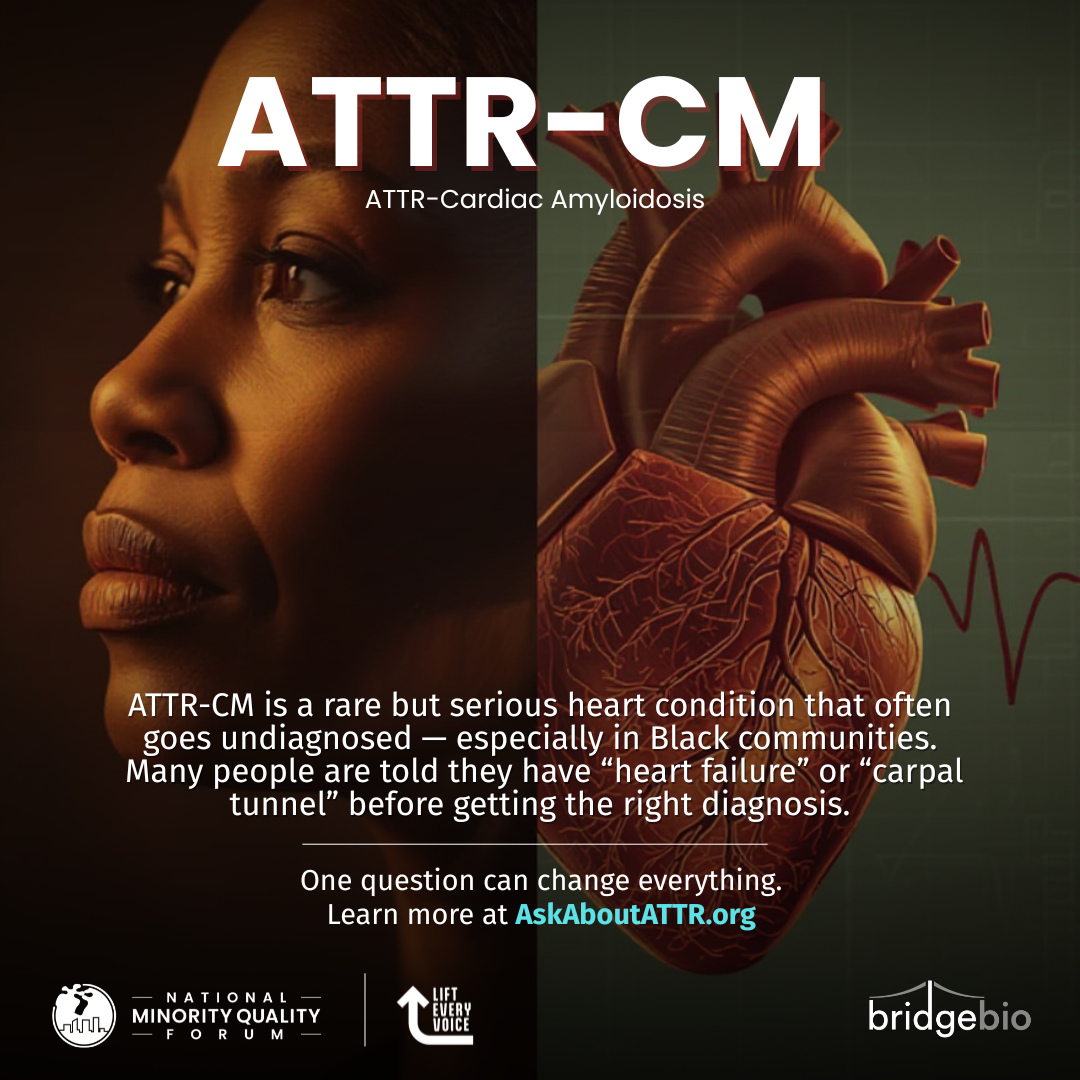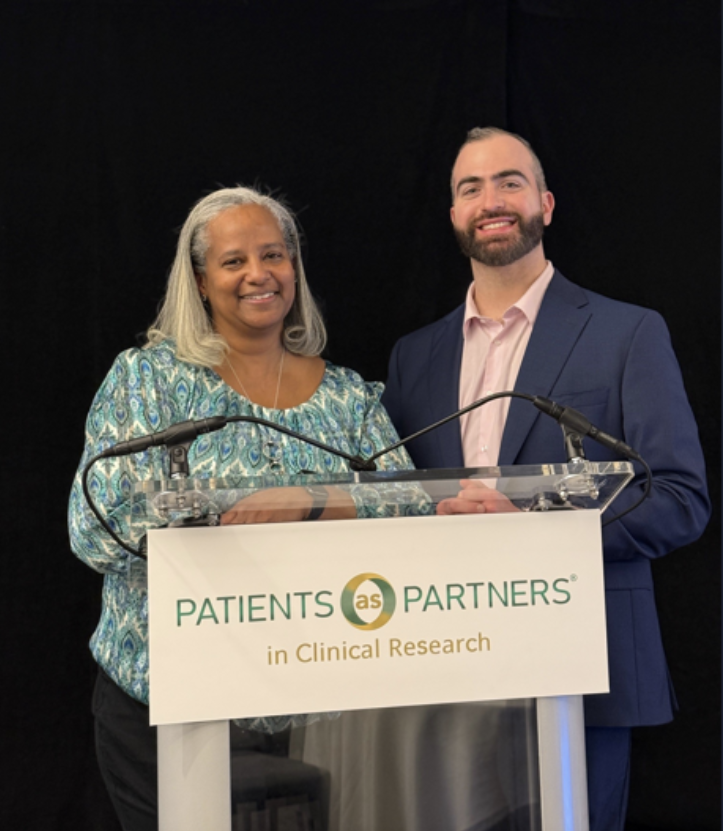
November 13, 2025
By Adjoa Kyerematen
National Minority Quality Forum Launches AskAboutATTR.org to Empower Communities with Knowledge on Rare Heart Condition
Read More

Immediate Release
Media Contact:
Adjoa Kyerematen
akyerematen@nmqf.org
202-220-8505
NMQF Expands Clinical Trial Learning Community Model to Address Disparities in Alzheimer’s Research
Washington, D.C. — The National Minority Quality Forum has successfully convened an advisory board to expand its Clinical Trial Learning Community (CTLC) model to focus on Alzheimer’s disease. The Advisory Board Final Comprehensive Report highlights key challenges and solutions in clinical trial participation. It also provided actionable recommendations to address healthcare disparities, improve trust in research, and enhance patient access to Alzheimer’s clinical trials. This initiative builds on the success of the existing CTLC framework, developed in collaboration with Biogen, to underscore why clinical trial enrollment must reflect the epidemiology of the disease to help reduce health disparities and drive scientific excellence.
Since its establishment in 2020, the CTLC model has been dedicated to identifying and addressing barriers to clinical trial participation. By fostering collaborations among community leaders, healthcare professionals, researchers, and patient advocates, the CTLC model enhances clinical trial awareness and accessibility while ensuring that research findings are applicable to specific patient groups.
NMQF and Biogen decided to extend the model to Alzheimer’s disease following the success of the CTLC work in lupus research. “We recognize that addressing disparities in Alzheimer’s research requires a multi-faceted approach that prioritizes community engagement and relationship building,” said Kate Wilson, who ensures representative clinical trials at Biogen. “Through our collaboration with NMQF, we aim to build trust with patient populations who need to be represented in clinical trials, ensuring that they have access to research opportunities.”
This board, composed of patient advocates, faith leaders, clinical researchers, and physicians, was tasked with identifying barriers to clinical trial participation and proposing strategies to enhance patient and caregiver engagement. They met from April to August 2024.
Key findings and recommendations from the advisory board include:
In the U.S., nearly 21% of Black/African American people over the age of 70 and nearly 13% of Hispanic people over the age of 65 have Alzheimer’s. Because of socioeconomic disparities, cultural factors, and healthcare access, these groups often face delays in getting diagnosed and experience more severe symptoms. To address the needs of Black/African American, Latino, and Hispanic populations who are disproportionately affected by Alzheimer’s, NMQF developed culturally relevant materials that provide relatable, easy-to-understand information on the disease. These materials include an online educational toolkit that highlights information individuals can use before and after a diagnosis as well as ways to combat stigma and share information through social media. Last month, NMQF also held an in-person patient advocacy workshop with community members in New York City to share general information on Alzheimer’s and participating in clinical trials.
In addition, Michael DeSalvo Solarte, MSW, Program Manager for the Center for Professional and Strategic Alliances at NMQF, and Savine DaCosta, Clinical Trial Diversity Site Lead at Biogen, presented at the Patients as Partners conference on March 17. They discussed the CTLC model and shared insights on how their collaboration is helping to overcome barriers to clinical trial participation, especially among patient populations traditionally underrepresented in clinical trials.
Based on the advisory board’s recommendations, NMQF will continue implementation of the Alzheimer’s CTLC expansion by:
NMQF and its partners remain committed to ensuring that all communities have the knowledge and access needed to participate in groundbreaking Alzheimer’s research. This expansion marks a critical step toward bridging gaps in healthcare access and ensuring that Alzheimer’s clinical trials reflect the epidemiology of the disease.
###